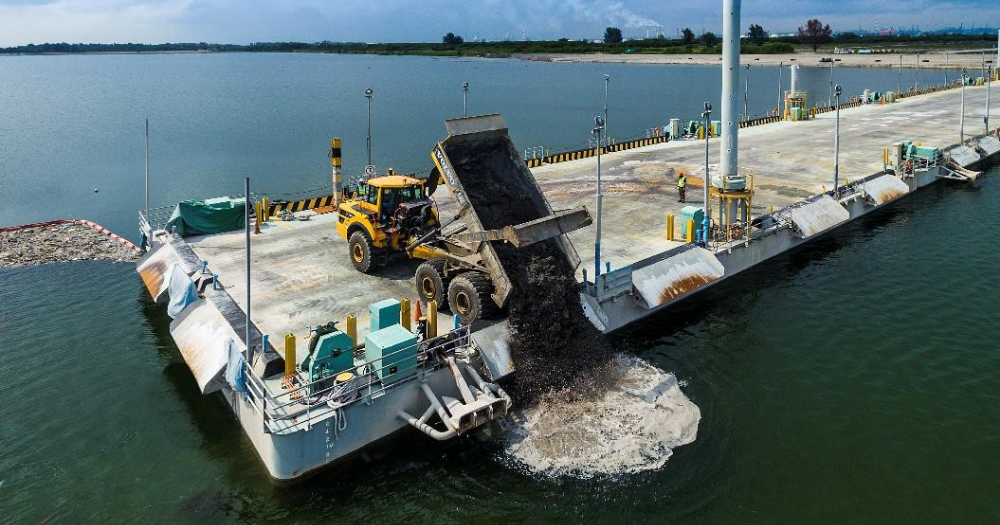
The sheer uncertainty and chaos that followed the closure of 16 Beximco factories in mid-December is but a reflection of a deeper crisis brought to light by the fall of the Awami League government. According to a report by Prothom Alo , these factories are among the 68 that have shut down—mostly permanently—in Gazipur, Savar, Ashulia, and Dhamrai over the past five and a half months. Six more are in the process of closing, while the number of job losses recorded so far has surpassed 50,000.
These closures and the subsequent protests by workers, often resulting in public disorder, highlight not only the urgency of the crisis, but also the need for long-overdue reforms in the industrial sector. Further details from the report help illustrate the point. For example, Gazipur has 2,176 registered factories, including 1,154 RMG factories, while Savar, Ashulia, and Dhamrai have 1,863 factories, of which 745 are RMG factories.

It then makes sense that the RMG sector has been disproportionately hit by the post-uprising turmoil, which is alarming given its crucial role in Bangladesh's export earnings. The crisis may spread to other factories where grievances over unpaid dues and annual wage increments threaten to destabilise their environment. The question is, why are factories failing to operate properly? According to factory owners and labour leaders, several factors are at play here: lack of export orders, inadequate support from banks, and the inability to cope with rising production costs.
Many owners, especially those linked to the ousted regime, took on loans far beyond their capacity, often through duplicitous means. Enforcement of stricter measures on these loans now has exacerbated the problem. Some owners have also gone into hiding, leaving their businesses in disarray.
The Beximco crisis perfectly captures this situation: the group's total debt, according to the labour adviser , exceeds Tk 40,000 crore, including Tk 29,925 crore borrowed against 32 factories in Beximco Industrial Park. However, 16 of these factories exist only on paper and were used as collateral for loans. Given the sheer volume of its debt, the government has reportedly opted against reopening the closed factories.
Where does it leave Beximco's laid-off workers? What about the workers of other closed or soon-to-be-closed factories? It is not enough to simply arrange for the payment of their unpaid dues. These people need jobs, which are hard to come by in the current situation, especially for women and those with disabilities. Finding employment for them and helping the struggling factories to stay afloat are equally important.
We, therefore, believe the government should urgently introduce a structured financial support mechanism for them while also facilitating targeted loan restructuring programmes in collaboration with banks. That said, it is equally important to think about the future and undertake proper reforms to prevent the recurrence of such crises again. We hope the Labour Reform Commission, which is supposed to submit its recommendations to the government by February 18, will address the systemic issues that have long plagued the industrial sector.
Building an environment that supports uninterrupted growth and livelihood, free from undue business and political influences, is crucial. The sheer uncertainty and chaos that followed the closure of 16 Beximco factories in mid-December is but a reflection of a deeper crisis brought to light by the fall of the Awami League government. According to a report by Prothom Alo , these factories are among the 68 that have shut down—mostly permanently—in Gazipur, Savar, Ashulia, and Dhamrai over the past five and a half months.
Six more are in the process of closing, while the number of job losses recorded so far has surpassed 50,000. These closures and the subsequent protests by workers, often resulting in public disorder, highlight not only the urgency of the crisis, but also the need for long-overdue reforms in the industrial sector. Further details from the report help illustrate the point.
For example, Gazipur has 2,176 registered factories, including 1,154 RMG factories, while Savar, Ashulia, and Dhamrai have 1,863 factories, of which 745 are RMG factories. It then makes sense that the RMG sector has been disproportionately hit by the post-uprising turmoil, which is alarming given its crucial role in Bangladesh's export earnings. The crisis may spread to other factories where grievances over unpaid dues and annual wage increments threaten to destabilise their environment.
The question is, why are factories failing to operate properly? According to factory owners and labour leaders, several factors are at play here: lack of export orders, inadequate support from banks, and the inability to cope with rising production costs. Many owners, especially those linked to the ousted regime, took on loans far beyond their capacity, often through duplicitous means. Enforcement of stricter measures on these loans now has exacerbated the problem.
Some owners have also gone into hiding, leaving their businesses in disarray. The Beximco crisis perfectly captures this situation: the group's total debt, according to the labour adviser , exceeds Tk 40,000 crore, including Tk 29,925 crore borrowed against 32 factories in Beximco Industrial Park. However, 16 of these factories exist only on paper and were used as collateral for loans.
Given the sheer volume of its debt, the government has reportedly opted against reopening the closed factories. Where does it leave Beximco's laid-off workers? What about the workers of other closed or soon-to-be-closed factories? It is not enough to simply arrange for the payment of their unpaid dues. These people need jobs, which are hard to come by in the current situation, especially for women and those with disabilities.
Finding employment for them and helping the struggling factories to stay afloat are equally important. We, therefore, believe the government should urgently introduce a structured financial support mechanism for them while also facilitating targeted loan restructuring programmes in collaboration with banks. That said, it is equally important to think about the future and undertake proper reforms to prevent the recurrence of such crises again.
We hope the Labour Reform Commission, which is supposed to submit its recommendations to the government by February 18, will address the systemic issues that have long plagued the industrial sector. Building an environment that supports uninterrupted growth and livelihood, free from undue business and political influences, is crucial..















